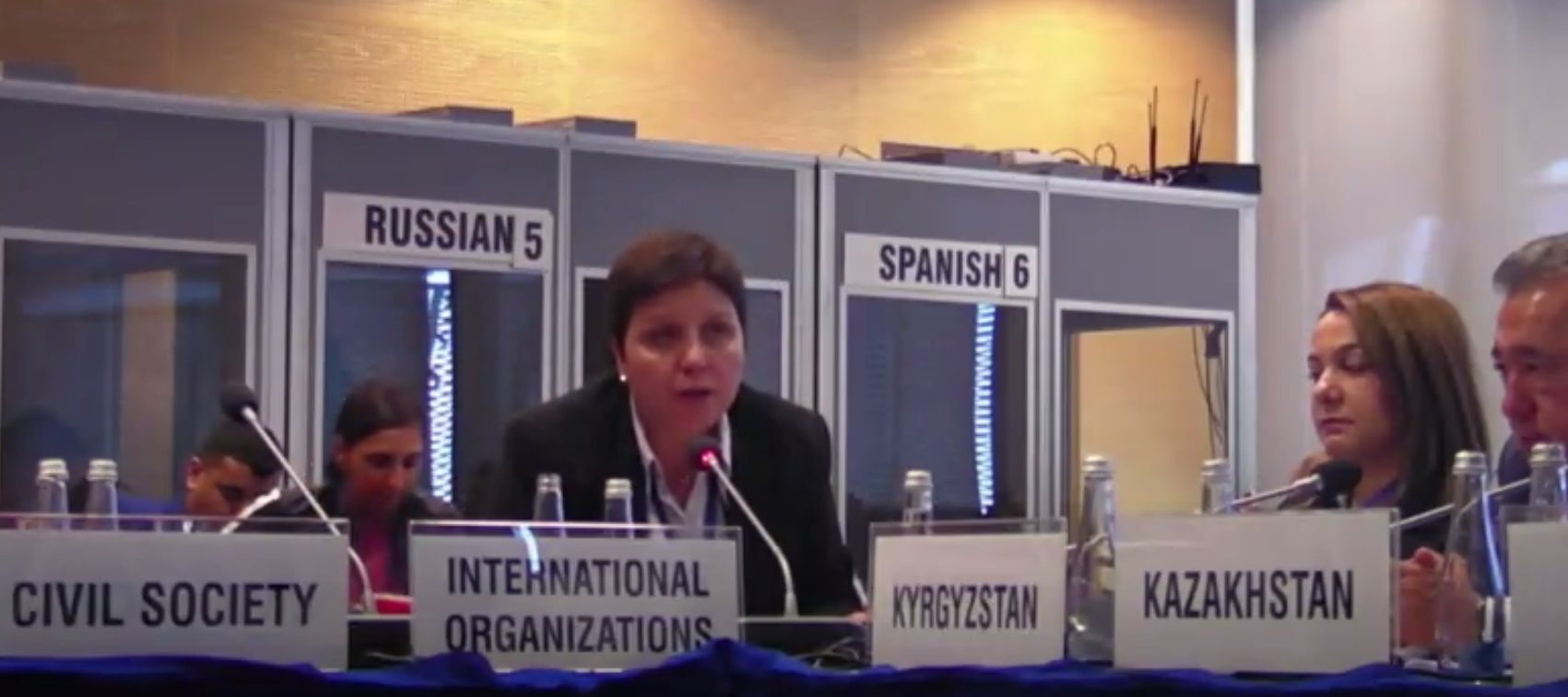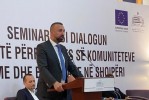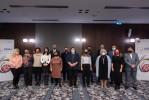RCC's Roma Integration 2020 Policy Expert participates at the OSCE HDIM 2017
- 18 Sep 2017
- News

OSCE HDIM 2017
The Human Dimension Implementation Meeting (HDIM) of OSCE participating States is Europe's largest annual human rights and democracy conference. It is organized every year by the OSCE Office for Democratic Institutions and Human Rights (ODIHR) as a platform for the 57 OSCE participating States, the OSCE Partners for Co-operation, OSCE structures, civil society, international organizations and other relevant actors to take stock of the implementation of OSCE human dimension commitments, discuss associated challenges, share good practices and make recommendations for further improvement. The 2017 meeting took place in Warsaw from 11 to 22 September 2017. More information on the meeting can be found on the OSCE website.
Ms Aleksandra Bojadjieva, Policy Expert at the Regional Cooperation Council’s Roma Integration 2020 Action Team, participated at Working session 10: Tolerance and Non-Discrimination I. The session focused on the rights of persons belonging to national minorities, particularly Roma and Sinti issues and the implementation of the OSCE action plan, and on preventing aggressive nationalism, racism and chauvinism. Video material of the full session is available. Ms Bojadjieva had an intervention during the meeting (timing in the video: 02:32:47-02:34:57), as follows:
Thank you Mr Chair,
I’m Aleksandra Bojadjieva from the Regional Cooperation Council and I work on the Roma Integration 2020 project that is funded by the European Union and the Open Society Foundations. The project works with the governments from the Western Balkans and Turkey to improve their performance regarding their Roma integration policies – their strategies and action plans, on their path of EU integration. We have been working for year and a half and I believe I have good news to bring to the table.
The governments of the region adopted regional standards on monitoring and reporting, including impact assessment that has been recommended by the introductory speakers here at this session. We are happy to say that most of the governments submitted their annual reports for 2016. We would further encourage the governments to make these standards part of their official strategies and action plans, and we are also going to help them further to improve their reporting and monitoring standards.
Furthermore, we are helping the governments to properly budget their strategies and action plans, including public budgeting and donor funding. In this sense we are going to work with the governments, and we are encouraging the governments to develop and adopt regional standards for proper budgeting of the strategies and action plans for Roma integration, but also for general public budgeting responsible for Roma integration.
Finally, I would like to note that according to the monitoring reports from 2016, the weakest thematic area is employment and we are encouraging the governments to prioritize this particular area for the upcoming period.
Thank you very much.
Ms Bojadjieva also attended a following side event during the HDIM, organized by the OSCE Contact Point for Roma and Sinti Issues on the topic “Roma and Sinti Youth Initiative: Youth as Agents of Change”. During this meeting young Roma and Sinti activists presented a range of activities they implement with young people across the OSCE area. Ms Bojadjieva shortly intervened by reiterating the recommendation to prioritize the area of employment, adding that the lesson learned from the area of education should be applied that investments in early ages are the most effective and efficient, thus particular attention should be paid to the employment of young Roma.






